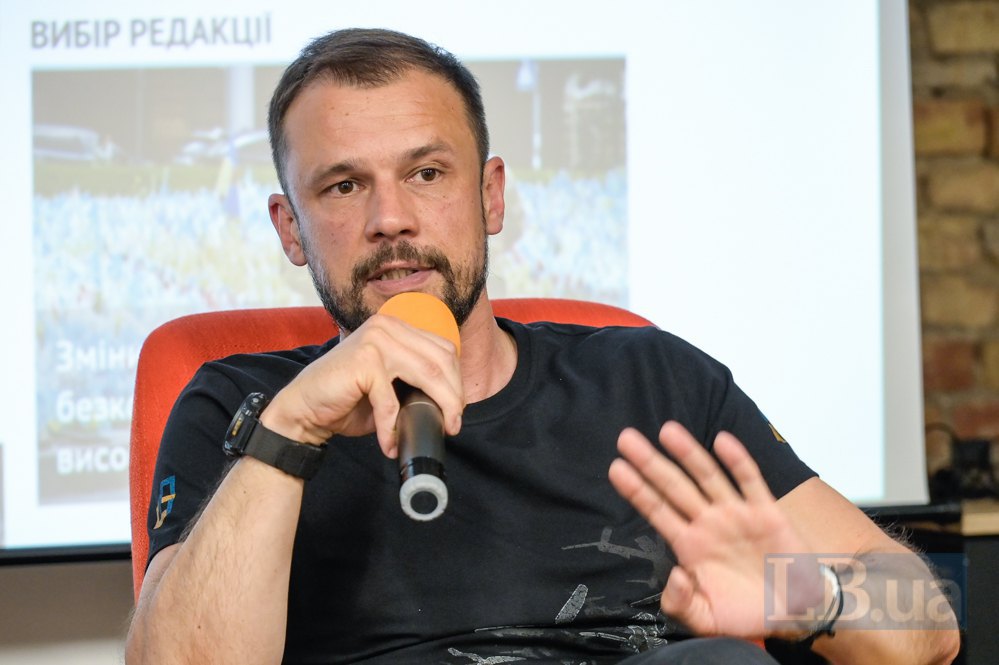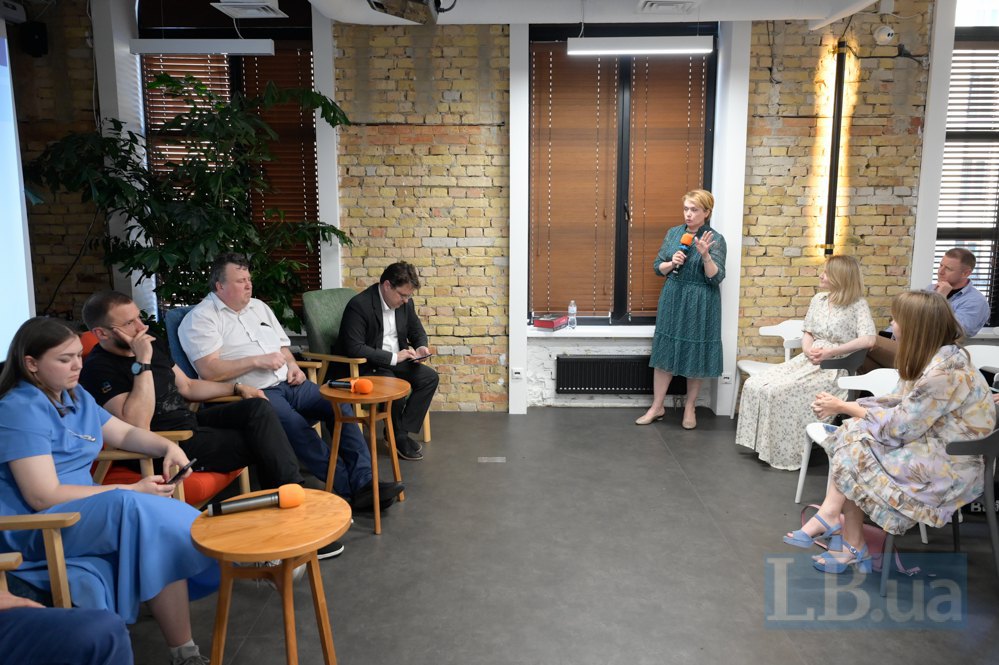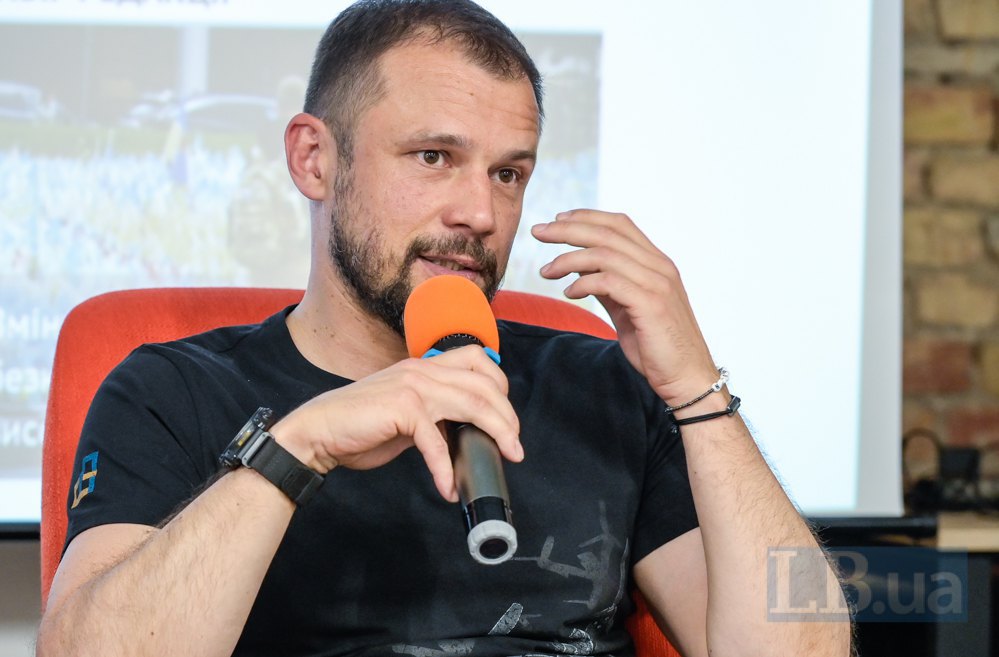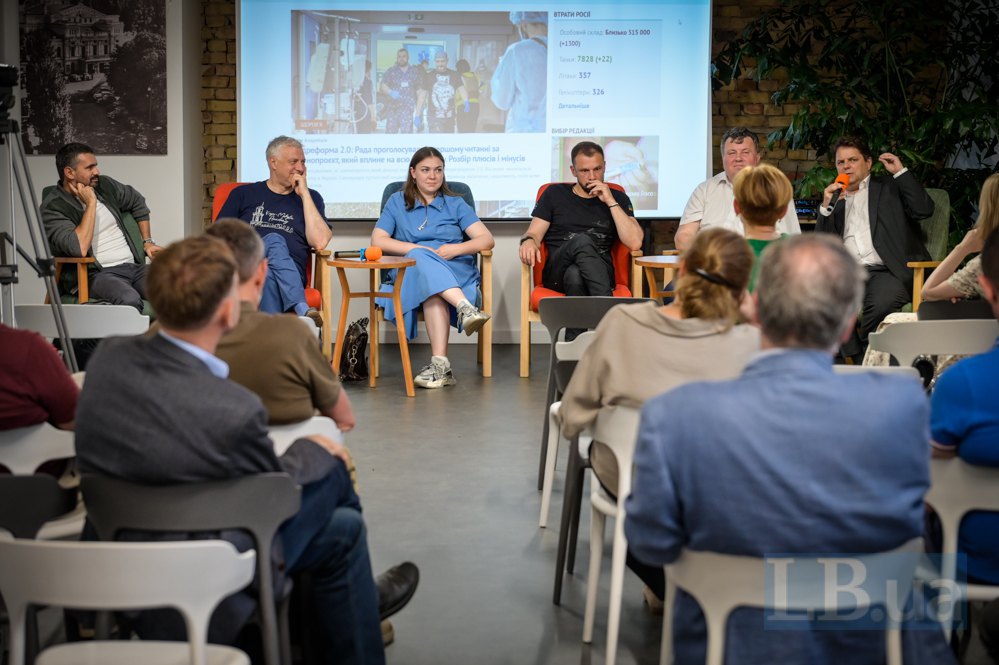
The same thing is happening with our transformation of the education system. Apart from the fact that the education system itself is extremely inert. Perhaps this is the most inert area in general. We are already in the fifth year of our cadence. The changes in higher education that we made with the first staff of the ministry (in Volodymyr Zelenskyy's team - Ed.) - with Anya Novosad, her team, and Yehor Stadnyy - began to bear fruit in about two years.
Unfortunately, the covid and full-scale coronavirus have removed things that should have already resulted in a very serious systemic transformation, such as the introduction of a funding formula for institutions that would make higher-quality universities richer and lesser-quality ones receive less funding. If we hadn't had this gap for two or three years, when the formula was stopped, there would be no problems with optimising universities now. Most of them would not exist,’ says Babak.
According to him, the National Academy of Pedagogical Sciences has calculated the number of students in universities, which allows them to determine their level in relation to international rankings. Two-thirds of higher education institutions in Ukraine can be called micro-universities, and a quarter have less than a thousand students.
"For example, one of the world's most authoritative rankings, QS, considers universities with less than five thousand students to be micro-universities. Micro. The world ranking hardly ever sees them... If you look at the Ukrainian higher education system, 67% of universities, two-thirds, have less than five thousand students.
Of the 200 universities under the jurisdiction of the Ministry of Education and the Ministry of Culture (except for military and the EMEA system), there are 50 state-funded universities with less than a thousand students. 50 universities... I understand that there are specific, boutique art institutions. This is a separate story. But 40 monolithic universities with less than a thousand students and branches should be simply closed,’ the MP said.

"I say: let's just fire all the rectors who have gone abroad. Instantly. Let's introduce conditional military administrations, as we did with some cities and regions at that time. This would allow us to replace them immediately. Because how can you leave a university with 10,000 students? You can go to Istanbul, join the zoom and not even hesitate to say: ‘Everything is fine, I control the territory of the university,’’ Babak says about the “one Kharkiv university”.
In March 2022, he adds, out of more than two dozen, four rectors were physically present in Kharkiv.
"When we cleared the Kyiv Region, toured the educational system, looked at the scale of the disaster, what was destroyed, and where we should direct our resources and efforts, I came to Kharkiv about five days later. I gathered all the rectors together with the governor. If I'm not mistaken, there were four out of twenty-one. Four rectors remained in Kharkiv.
This is a university city with huge universities, with a huge infrastructure. And they are saying in their zoom: ‘Everything is fine, we have the territory under control’. They all left, children were abandoned, teachers were abandoned, and those four rectors, including one frail woman from Karazin, took care of their students and teachers in shelters,’ says Babak.
And most of the 17 rectors who left then remained in their positions, he notes.

"The committee (the Verkhovna Rada Committee on Education and Science - Ed.) does not directly influence this, but we are trying to at least make some waves in that direction. But what?
I know how the Ministry's team is now struggling to optimise some institutions. And it is difficult. Even an attempt to merge one insignificant Kyiv university with a powerful one is met with resistance. Deputies come up to me in the hall: ‘Please, I graduated from this university, my child studies there, my cousin works there.’ I tell them: look, it's impossible - there is an audit report, a person gave his vice-rector an 8 million bonus for two years of war (we are talking about the State University of Infrastructure and Technology - Ed.) You explain, show the facts, and they are very reluctant: ‘Well, let's do it later anyway,’’ says the MP.
Any educational reforms face great resistance, Babak adds.
"Mykhaylo (Mykhaylo Vynnytskyy, Deputy Minister of Education and Science - Ed.), Oksen (Oksen Lisovyy, Minister of Education - Ed.) and I, his team, our team, tried to radically change the state order for training this year and introduce a system of grants that would go towards the financial autonomy of [educational institutions]. What prevented you? Everything: society; we didn't have enough votes in the Rada; we didn't even have enough within the Cabinet of Ministers, because the Ministry of Finance was involved as much as it could, but we failed.
These were the first reforms in 2019, and we just had to push them through en masse, by force. I regret not pushing harder. I honestly regret it. And I think that Anya Novosad regrets it. Many people do,’ Babak emphasises.
Currently, reforms in the education sector are being carried out according to the strategy of a small puzzle, he says.
"When you introduce small bills that don't really bother anyone, but if you put these ten together in a year, it turns out that this is an irreversible change. Unfortunately, it doesn't work otherwise. Because society does not have such a demand (for rapid and radical changes - Ed.). So we are taking steps with sane particles, which, one day, when Oksen [Lisovyy], for example, analyses his work over the past year and a half or two (God willing), it will turn out that something great and holistic has been done. And this is true. This is the way we are going. My colleagues in the parliament know that we are doing this. These are the final pieces, just like today (on 6 June, the Verkhovna Rada voted for 11 educational legislative acts - Ed.) This is a piece of the puzzle. Because if you put it on top of the law that we adopted a year ago and a couple of resolutions that were separately passed by the Cabinet of Ministers, it is actually an irreversible reform,’ notes Serhiy Babak.
During the discussion, he also stressed that it is important to unite the ‘sane part’ of business, civil society, politicians and the executive branch for a single goal - to ensure quality education in Ukraine. Today, the Head of the Verkhovna Rada Committee notes, it is not the kind of education that would attract students to return from abroad.
"People have left, a lot of them. It's no secret that they will continue to leave. If we have energy and then water and then sewerage, even more will leave. Let's be frank. They will leave. Now many children are being taken away in the 11th grade so that they do not fall under the mobilisation even potentially. Just in case. Will they come back? In 2022, I said - six months later, when I saw how many people were officially employed in the European Union, at least the statistics we had - that most of them would not return. We want to bring them back - it's true. But can the higher education system do this in its current form? It is unlikely.
We need to adapt very quickly, because the demographic crisis is serious. The number of children born is many times less. Some of them are leaving. Why? You know, when we want to invest somewhere, build a new school, and I'm not talking about stadiums and roads, we are accused of saying: why not on drones? We, as taxpayers, are spending a lot of money on an inefficient system.
It needs to be changed quickly. It may be painful, it may be suicide for the ministry's team (and perhaps for us (MPs - Ed.) in part) politically, obviously, but it needs to be done quickly and now. Otherwise, this lack of quality will continue to produce itself. The hundreds of thousands of students who have gone to second and third higher education, official, legal, as we call them; the abnormal number of postgraduate students who have gone to hide from the army - they do not improve the quality of education or the image of our higher education. That is why we need to take quick surgical action,’ says Babak.









